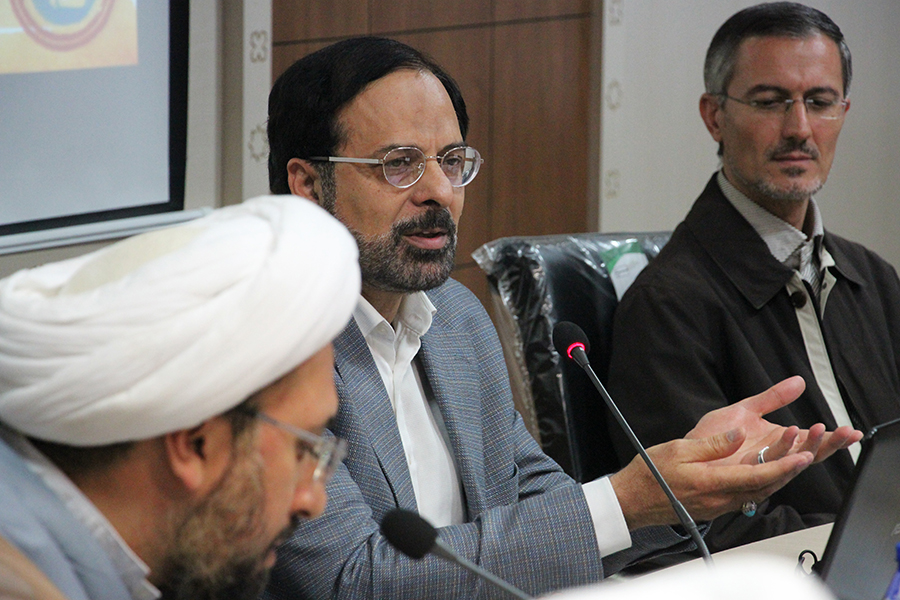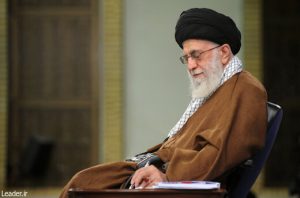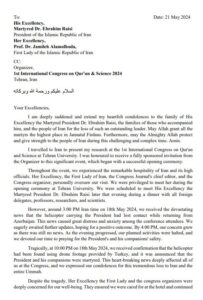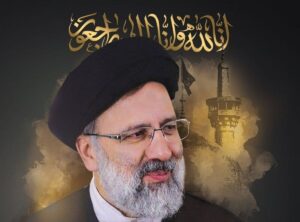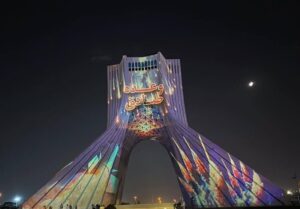The scientific pre-conference, part of the series of specialized sessions on the Quran and sciences of the International Congress of Quranic Scholars, titled “Quran’s Perspective on Experimental Sciences,” took place on Thursday, 5th Mehr, in the Imam Reza (AS) Hall of the University of Islamic Sciences with the presence of professors and students.
The session commenced with the recitation of verses from the Noble Quran by Dr. Oveisi, a faculty member of the University of Islamic Sciences. Following this, the scientific secretary of the session, Hojat al-Islam wal-Muslimeen Mansouri, the director of the Quran and Hadith Department of the University, provided explanations about the series of sessions of the Congress of Quranic Scholars. He emphasized one of the main objectives of the Presidential Institution and the Ministry of Science, defending the sanctity of the Quran and acquainting scholars worldwide with the development of Quranic activities in Iran. He thanked Dr. Herati, the honorable deputy minister and responsible for the coordination and development of Quranic research and higher education in the country, for his timely and courageous support of the Quran in the international arena.
Then, the esteemed presenter, Professor Mohammad Ali Majd-Faghihi, began his discussions with the title “Quran’s Perspective on Experimental Sciences (Horizontal and Vertical Development).” He first defined the term “science.” In language, science means absolute knowledge and awareness, regardless of what is known and related. However, when the term “science” is added to something, it refers to a set of propositions and statements that have been discovered or proven by a specific method, such as empirical sciences, humanities, and others. He then classified and explained types of science, considering authoritative science, abstract science, rational science, revelatory science, divine science, and empirical science as types of science. The relationship between the Quran and science was then elaborated, specifying that the meaning of science in this session is empirical sciences.
Service to the Quran by science is either confirmatory or explanatory. Sometimes science confirms the verses of the Quran, and as a result, proving the scientific miracle of the Quran becomes possible, and also, Quranic teachings are confirmed. Another service that science provides to the Quran is explanatory, such as interpreting scientific verses of the Quran, which are not interpretable scientifically without scientific studies. Professor Majd-Faghihi, taking the opportunity, explained the criticism of scientific service to the Quran by presenting extremist, neglectful, and moderate views in this field.
The Quran deals with empirical sciences either in the form of horizontal development or vertical development. Imam Ali (AS) said: “I swear by Allah, there is nothing in the Quran that precedes you in action without others.” (Nahj al-Balagha, Letter 47) Although others may not believe in the Quran, they have achieved horizontal development by acting on the teachings of the Quran. Quranic verses are not excluded from three assumptions when facing empirical science: either the verse is scientific, or science-averse, or science-oriented. What is meant by science-averse? It means being against a definite and proven scientific proposition. It must be said that such a thing does not exist in the Quran; neither is Quranic logic science-averse nor are Quranic statements contrary to scientific propositions. The reason that something contrary to science (definite revelation) cannot be in the Quran: 1. Quran’s revelation and the conformity of the book of creation and compilation 2. Verses that consider acceptance and obedience based on knowledge in the general sense, so a statement contrary to scientific knowledge cannot be real 3. The absence of a verse in opposition to science with the passage of time and scientific progress.
The second category: Science-averse; science cannot enter this field with its own tools, and therefore, it does not have the power to deny it, such as metaphysical and unseen matters. These matters can be proven through rational evidence, insight, and mastery of God’s creation. Although science may prove their existence, it does not have the power to deny these matters without evidence, such as supernatural events. But as long as science has not reached a conclusion and there is no reason to deny existence, these matters cannot be called myths because calling something a myth without scientific evidence is an unscientific act. The third category: Science-oriented; there is abundant emphasis on science in the Quran: 1. The existence of verses that do not accept speech without evidence and recommend that no one should speak or listen to a statement without relying on scientific evidence, so a scientifically documented statement is credible to him 2. The existence of multiple verses that recommend the use of empirical knowledge in the direction of horizontal and longitudinal development. Experimental knowledge is placed as a minor argument in the wisdom and mastery of God’s creation. Science is a sultan and a creative power. Economic, political, and military power is in the direction of science. But in which direction should this power
be spent? The esteemed Leader has repeatedly emphasized this matter. Toward the dignity, growth, regulation, and renewal of man and his life towards the purpose of creation and with the lack of such scientific religiousness, it is also jeopardized.
Another point is that although science is powerful, it is not absolute power; because being is under divine providence and power.
Verses that pay attention to empirical sciences for horizontal development with the approach of dignity, honor, and education include:
A) Verses with the domination vocabulary. B) Verses with the view and vision vocabulary. C) Numerous verses recommending the use of empirical knowledge.
Professor Majd-Faghihi then explained some verses and evidence from Nahj al-Balagha at the end.
In conclusion, the scientific secretary of the session, Hojat al-Islam Dr. Mansouri, summarized the discussions and asked some questions about the presented materials that were raised by the participants in the session. He asked the honorable presenter to address them, and he provided answers in the remaining time.
The session concluded with prayers for Imam Mahdi (AS) and blessings upon Muhammad and his family.

